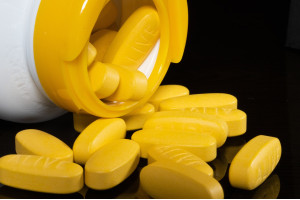Recent Epidemiological Drug Trends
Introduction
Epidemiological drug trends have emerged as a crucial aspect of public health and safety. In an ever-evolving world, comprehending the dynamics of recent drug trends is essential to effectively address the challenges they present. In this article, we will delve into what epidemiological drug trends encompass, the factors that influence them, and their far-reaching impact on society. We will also explore the methods employed for surveillance, prevention strategies, and the global perspective on drug trends.
What Are Epidemiological Drug Trends?
Epidemiological drug trends refer to the study of how drug use and abuse evolve over time within a population. This field of research entails analyzing patterns, causes, and consequences of drug consumption. The data collected and analyzed provide invaluable insights into public health, enabling authorities to formulate effective strategies for addressing emerging issues.
Understanding these trends is vital for recognizing and mitigating the effects of substance abuse on individuals, families, and communities. By monitoring drug trends, we can identify high-risk groups, predict potential impacts on public health, and allocate resources more efficiently.
Factors Influencing Drug Trends
Several factors play a pivotal role in shaping drug trends:
Socioeconomic Factors
Socioeconomic conditions, such as income levels and employment opportunities, can significantly influence drug use patterns. Economic disparities may lead to increased substance abuse in disadvantaged communities.
Cultural Factors
Cultural norms and attitudes toward drug use can substantially impact trends. The societal acceptance of certain substances may lead to their increased use.
Technological Advancements
Advancements in technology have also impacted drug trends. The dark web, for instance, has facilitated easier access to and distribution of illicit substances.
Notable Recent Drug Trends
Several recent drug trends have garnered public attention:
The Opioid Crisis
The opioid crisis has swept through numerous countries, resulting in a distressing number of overdoses and fatalities. Understanding the reasons behind this crisis is essential for finding effective solutions.
Cannabis Legalization
The growing acceptance and legalization of cannabis have shifted drug trends. This change presents both opportunities and challenges for public health.
The Emergence of Designer Drugs
Designer drugs, often created to mimic the effects of illegal substances, pose unique challenges. They are challenging to regulate and can have severe health consequences.
Impact on Society
Epidemiological drug trends have profound effects on society:
Health Implications
The physical and mental health of individuals can be severely affected by drug trends. Increased substance abuse can lead to a surge in health issues and strain healthcare systems.
Economic Implications
Substance abuse trends also have economic consequences. From healthcare costs to lost productivity, there are significant financial burdens associated with drug abuse.
Surveillance and Data Collection
Epidemiologists employ various methods to monitor drug trends:
Methods Employed by Epidemiologists
Surveillance involves collecting data from various sources, such as hospitals, law enforcement agencies, and community surveys. This data is then analyzed to identify trends.
The Role of Data in Decision-Making
Data collected plays an instrumental role in decision-making. It guides the allocation of resources, the development of policies, and the planning of interventions.
Prevention and Intervention Strategies
Addressing drug trends necessitates a multifaceted approach:
Community-Based Programs
Engaging communities in prevention efforts can have a significant impact. Education and support programs can empower individuals to make healthier choices.
Government Policies
Government policies play a crucial role in regulating drug trends. Legislation and regulations can influence drug availability and use.
Treatment and Rehabilitation Centers
Providing accessible and effective treatment options is essential for those struggling with addiction. Rehabilitation centers play a vital role in helping individuals recover.
The Global Perspective
Drug trends are not confined to a single region or country:
International Drug Trends
The globalization of drug markets means that trends can quickly cross borders. Collaborative efforts between nations are essential to address these challenges.
Challenges in Addressing Drug Trends
Several obstacles complicate the fight against drug trends:
Stigma and Misinformation
Stigma surrounding drug abuse can deter individuals from seeking help. Addressing this stigma is crucial in supporting those in need.
Access to Treatment
Access to treatment can be limited, particularly in underserved communities. Expanding access to rehabilitation services is a priority.
The Future of Drug Trends
As the world continues to evolve, so do drug trends:
Predicting Future Trends
Anticipating future drug trends is challenging but necessary. Epidemiologists work to identify potential issues and prepare for them.
Preparing for Emerging Challenges
The knowledge gained from studying recent trends can assist public health officials and policymakers in preparing for emerging challenges.
Conclusion
In conclusion, recent epidemiological drug trends are a critical focus in public health. Understanding the factors that shape these trends, their impact on society, and the methods used to monitor and address them is essential for a healthier and safer future.
FAQs
- 1. How do epidemiologists collect data on drug trends?
Epidemiologists collect data from various sources, including hospitals, law enforcement agencies, and community surveys. This data is then analyzed to identify trends in drug use and abuse. - 2. What are the economic implications of drug trends?
Substance abuse trends can have significant economic consequences, including healthcare costs, lost productivity, and financial burdens on society. - 3. How can communities help address drug trends?
Communities can play a vital role in addressing drug trends through community-based programs, education, and support initiatives that empower individuals to make healthier choices. - 4. What is the significance of international collaboration in addressing drug trends?
International collaboration is essential because drug trends often cross borders. Collaborative efforts between nations are crucial to effectively combat the challenges posed by global drug markets. - 5. What can be done to address the stigma around drug abuse?
Addressing the stigma around drug abuse involves education, awareness, and promoting a compassionate approach to individuals struggling with addiction. Stigma reduction is a crucial step in supporting those in need.

